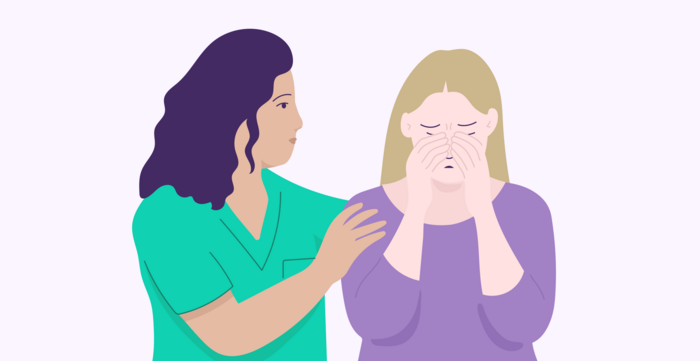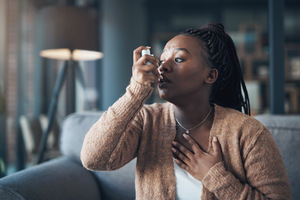Navigating mental health crises can be a daunting experience, and knowing your options before facing a mental health emergency is crucial. In recent years, the concept of psychiatric urgent care has gained prominence as a valuable resource for individuals in need of immediate mental health treatment. This article explores the role of urgent care facilities in addressing mental health crises, providing insights into when it may be appropriate to seek care at these specialized centers, and offering guidance on understanding the available options for mental health crisis intervention. Understanding the nuances of utilizing urgent care for mental health needs can be pivotal in ensuring timely and appropriate support during challenging times.
Mental Health and Urgent Care
Anxiety, depression, and panic attacks are common mental health issues that affect millions of Americans. Many people think these mental health symptoms can only be treated by therapists. However, mental health concerns like these can actually be effectively addressed at an urgent care center, especially if you need after-hours care or aren’t sure what your symptoms could mean.
If you’re having an anxiety attack or suffering from depression, an urgent care center can treat you right away. Knowing which mental health symptoms can be treated with urgent care can bring you one step closer to feeling better and avoiding the onset of other serious health concerns.
Psychiatric Urgent Care Vs. Urgent Care: Differences Explained
Understanding the differences between psychiatric urgent care and regular urgent care is essential for individuals seeking timely and appropriate support during mental health crises. According to Mind 24-7, both types of facilities are usually open 24/7, however, you may not find psychiatric urgent care clinics in smaller cities or towns.
The main differences between these two types of urgent care include:
-
Psychiatric urgent care facilities are exclusively dedicated to mental health support, while regular urgent care facilities handle many types of physical conditions, including illnesses and injuries, as well as provide mental health support.
-
Psychiatric urgent care facilities assist quickly, while other facilities might take longer for assistance or may refer you to a therapist or hospital for further evaluation and treatment.
-
Patients can receive intervention, stabilization, medication, and counseling in a psychiatric urgent facility, while other types of facilities may only conduct testing and limited counseling services.
Mental health symptoms that can be treated with urgent care
According to the CDC, symptoms of anxiety and depression can be considered medical emergencies that require emergent care. It is recommended that suicidal and homicidal ideation be evaluated emergently in a local emergency department, says the CDC. Suicidal thoughts are one of the most serious symptoms of anxiety and depression that require emergent care, reports the National Institutes of Health (NIH) and the CDC.
Mental health symptoms that can be treated at an urgent care center, according to Texas A University and the University of Texas at Austin, include:
-
Anxiousness and or feeling depressed
-
Difficulty breathing
-
Rapid breathing, known as hyperventilation
-
Rapid heart rate
-
Heart palpitations
-
Sweating
-
Trembling in extremities
-
Hot or cold sensations
-
Muscle pain or tension
-
Feeling as if things aren’t real (derealization)
These symptoms may also indicate panic disorder, which is a type of anxiety disorder characterized by recurring, unexpected anxiety attacks or panic attacks, explains the NIH.
Symptoms of an anxiety attack, according to the NIH, include:
-
Rapid heart rate, pounding heartbeat, or heart palpitations
-
Sweating
-
Trembling or shaking
-
Shortness of breath, or sensations of choking or smothering
-
Feelings of impending doom
-
Feelings of being out of control
Tips to mitigate mild mental health concerns at home
Self-care may help play an important role in your overall well-being, including your mental health. According to the NIH, self-care can help you manage stress, increase your energy, and reduce your risk for illness. The NIH notes that even the smallest acts of self-care in your daily life can have a major impact on your mental health.
Steps you can take to manage mild mental health concerns at home, according to the NIH and University of Minnesota (UMN), include:
Exercising regularly, for at least 30 minutes a day
The UMN says that exercise can create a sense of empowerment and boost your confidence and self-esteem — all of which have a positive impact on anxiety and depression.
Eating healthy, highly nutritious foods
High amounts of nutrients can help the brain function properly and regulate brain chemicals to reduce anxiety and depression, reports the UMN. The university adds that reducing your intake of caffeine and sugar can also help you avoid anxiety and depression.
Reducing alcohol intake
Alcohol use may worsen depression, suggests the UMN.
Getting an adequate amount of quality sleep
Poor sleep can negatively affect your mood and increase your risk for anxiety and depression, reports the UMN.
Practicing gratitude, meditation, and positive thinking
These behaviors can make you feel calmer, happier, and more resilient, says the UMN. It adds that experiencing forgiveness and kindness can also help alleviate anxiety and depression.
Manage stress
According to the UMN, too much stress can worsen or trigger anxiety and/or depression. Managing stress can help you feel more relaxed and reduce your risk for mental illness.
Staying connected with friends and family
Having strong relationships and social support networks can make you feel less lonely and reduce isolation which staves off anxiety, says the UMN. Stay in touch with friends and relatives or bond with a pet to maintain your mental health.
Finding a sense of purpose
Having a sense of purpose can strengthen your mental health and lead to less worry and greater happiness over time, reports the UMN. Focus on interests and areas of your life that make you feel needed and important and that give you a sense of purpose, such as being a parent, playing an important role at work, or volunteering in your community.
When Should You Seek Urgent Care Assistance for Your Mental Health?
Mental health can change quickly, so it's important to understand different situations that may trigger your mental health to change and when to seek urgent care assistance. According to the Docs Medical Group, you should consider urgent care for your mental health in the following situations:
-
Post-traumatic stress reactions: If you are experiencing intense and prolonged emotional distress, anxiety, or other symptoms following a traumatic event, seeking urgent care assistance can provide immediate support and intervention to manage the impact of the trauma on your mental health.
-
Disturbances in your sleep patterns: New and persistent disruptions in your sleep, such as insomnia or hypersomnia, can significantly affect your mental well-being. Urgent care assistance can help address these sleep disturbances and provide strategies to improve your sleep quality.
-
Sudden changes in appetite: Significant and unexplained changes in your appetite, leading to excessive eating or loss of appetite, can be indicative of underlying mental health issues such as depression or anxiety. Urgent care can offer assessment and support to address these changes.
-
Mood swings you cannot explain: If you are experiencing extreme or unexplained mood swings that are impacting your daily functioning and well-being, seeking urgent care assistance can help in understanding and managing these fluctuations.
-
After a drastic change in your life: Major life changes, such as the loss of a loved one, divorce, or job loss, can trigger mental health challenges. Seeking urgent care assistance during these times can provide crucial support and coping strategies to navigate the impact of such changes on your mental well-being.
Where to go if your symptoms get worse
The CDC recommends that you visit an urgent care center or walk-in clinic right away if you find that your depression or anxiety symptoms are growing worse even after practicing self-care. Getting urgent care for anxiety or depression may help you achieve a sense of calm and may help reduce your risk for suicide, heart attack, and other medical problems linked to mental health symptoms, according to the CDC.
Use Solv to find a highly rated urgent care center in your area. Solv features all the top-rated urgent care doctors in one convenient place online so you can choose from the best and receive quality treatment.
FAQs
Can urgent care centers provide treatment for mental health issues?
Yes, urgent care centers can provide immediate treatment for mental health issues like anxiety and depression.
What is the difference between psychiatric urgent care and regular urgent care?
Psychiatric urgent care facilities are dedicated to mental health support and offer comprehensive services like intervention, stabilization, medication, and counseling. Regular urgent care centers handle various physical conditions and offer limited mental health support.
What symptoms can be treated at urgent care centers?
Symptoms like anxiousness, difficulty breathing, rapid heart rate, unexplained mood swings, and changes in appetite can be treated at urgent care centers.
Can self-care practices help manage mental health concerns?
Yes, self-care practices such as regular exercise, healthy eating, reducing alcohol intake, getting quality sleep, and practicing gratitude can help manage mild mental health concerns at home.
When should one seek urgent care assistance for mental health?
One should seek urgent care assistance for mental health during post-traumatic stress reactions, disturbances in sleep patterns, sudden changes in appetite, unexplained mood swings, and after a drastic change in life.
Where can I get anxiety?
Anxiety is usually triggered by stress or a stressful event, reports the NIH. For instance, you may develop anxiety during a period of unemployment or when relocating to a new city or state. The NIH adds that anxiety is a normal reaction to stress and that it can happen to everyone from time to time.
How can I get prescribed anxiety medication?
Anti-anxiety medication can be prescribed to you by your general care physician or another medical professional who is licensed to prescribe medications, reports the NIH. Ask the doctor treating your anxiety about medications that can help reduce your symptoms.
How can I ask my doctor for anxiety medication?
Anti-anxiety medications may help reduce your anxiety symptoms and are often combined with psychotherapy to treat anxiety disorders reports the NIH. Ask your doctor about anti-anxiety medications if you are experiencing one or more symptoms of an anxiety disorder.
Who can prescribe anxiety medication?
Anti-anxiety medications can be prescribed by a primary care provider, psychiatrist, or psychologist, reports the NIH. Ask your doctor whether they can prescribe you an anti-anxiety medication if you suffer from generalized anxiety or another anxiety disorder.











